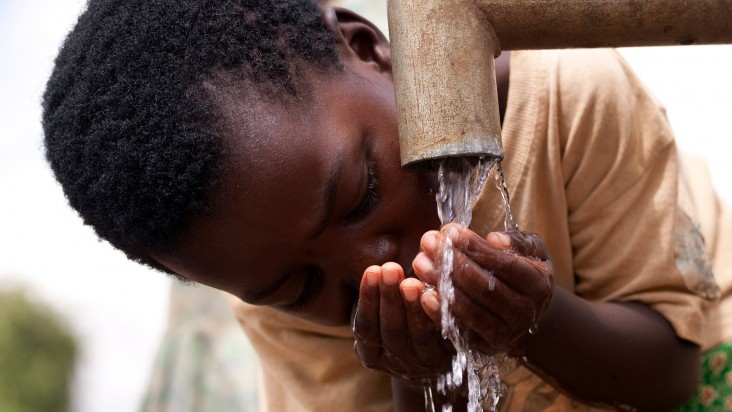
Although substantial gains have been made in improving access to clean drinking water and sanitation facilities, Malawi still faces health issues in terms of water, sanitation, and hygiene. Poor practices surrounding transportation and storage of the water make waterborne illnesses, including cholera, common occurrences in Malawi.
Indeed, a 2014 Multiple Indicator Cluster Survey (MICS) concluded that 42% of children under the age of five have experienced at least one incident of diarrhea in the two weeks preceding the survey. This demonstrates that Malawi still has room for progress in this sector.
USAID works closely with Malawi’s Ministries of Health, Agriculture, and Irrigation and Water Development to strengthen the Water, Sanitation and Hygiene (WASH) sector. Continuing this vital partnership, USAID remains committed to working with the Government of Malawi, development partners, and civil society to improve access to and provision of quality WASH services.
IMPACT
USAID is increasing Malawians’ access to quality WASH services through targeted interventions at household, community, school, and health facility levels. Activities include water treatment and the development of new water sources, training communities in the maintenance of boreholes/wells, and integration of hygiene messages into all programs.
IN 2015:
•Through community services and community mobilization USAID constructed 60 shallow wells and 3 boreholes.
•Promoted the construction of 360,080 toilets with handwashing facilities by training masons.
•Increased the supply of clean portable water through the installation of 2600 chlorine dispensers in 25 villages.
•Increased awareness on improved sanitation by reaching out to 8805 people in both Blantyre and Lilongwe peri-urban areas.
•Trained 844 private health providers, pharmacists and drug store owners on the new diarrhea treatment protocols that focus on zinc and oral rehydration salts (ORS).







Comment
Make a general inquiry or suggest an improvement.